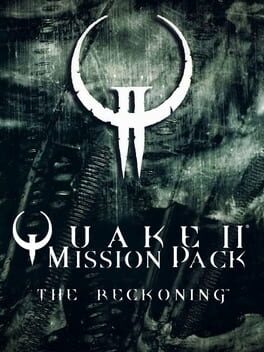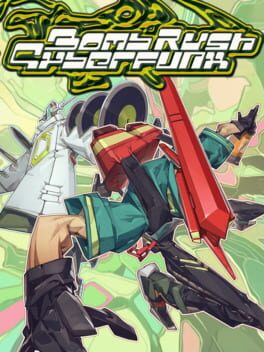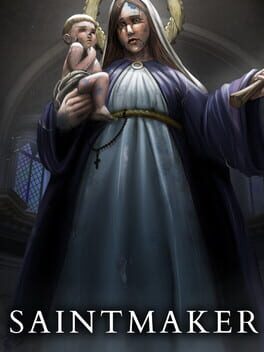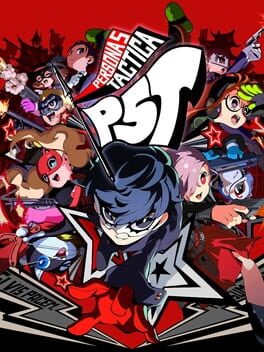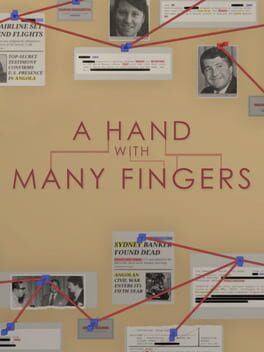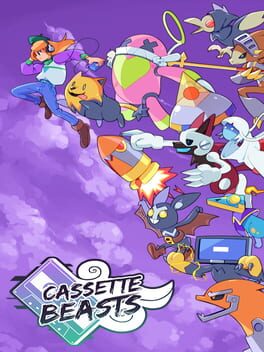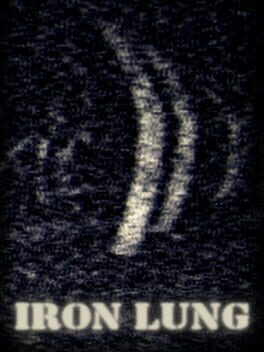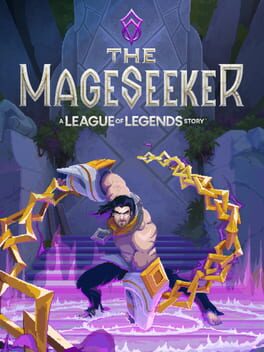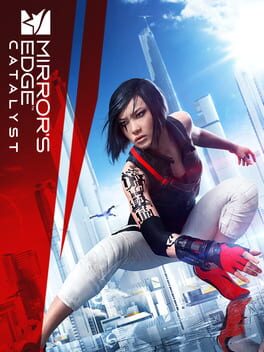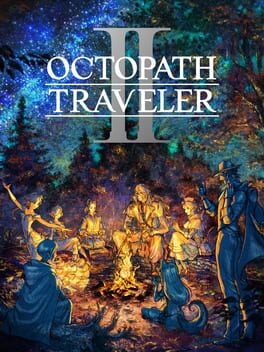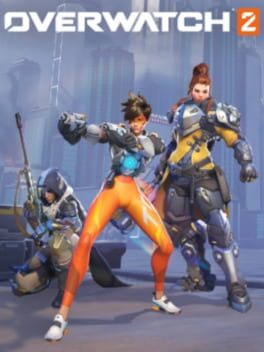ResonanceJay
99 Reviews liked by ResonanceJay
Plays to the weaknesses of Quake II.
Has a ridiculous amount of terribly placed monster closets, focuses heavily on the most bullet spongey enemies and adds new ones on top of that. Elevators that cannot be called up top so you have to take falling damage. Minimal amount of supplies to take care of the amount of enemies the game throws at you.
Basically, all things the original game did, but elevated and multiplied.
Has a ridiculous amount of terribly placed monster closets, focuses heavily on the most bullet spongey enemies and adds new ones on top of that. Elevators that cannot be called up top so you have to take falling damage. Minimal amount of supplies to take care of the amount of enemies the game throws at you.
Basically, all things the original game did, but elevated and multiplied.
Bomb Rush Cyberfunk
2023
From its very first trailer, Bomb Rush Cyberfunk wore its inspiration on its sleeve. It’s been nearly twenty years since its predecessor graced consoles, but the craving for such a specific style and aesthetic has been simmering consistently across the decades. Developers may retire, companies may collapse, the industry itself churns constantly, but there’s always going to be a place for games like Backyard Skateboarding.
While the magnum opus of Humongous Entertainment needs no introduction, it's hard not to reflect on such a remarkable history. Founded in 1992 by Ron Gilbert and Shelley Day, the company focused on building edutainment and children’s point and click games. Putt-Putt, Freddi Fish, Pajama Sam, and, of course, Backyard Sports. By 2004, the franchise had built a compelling cast of unique characters. But the good times couldn’t last forever. The dot com collapse put a nail in the company’s future and Humongous Entertainment would dissolve in 2006. The final “official” Humongous Entertainment game was Backyard Skateboarding: Game of the Year Edition.
Like most of the Backyard games and the long-running soap drama Peanuts, Skateboarding exists in a world without any visible adults. Authority exists in the outlines of the setting. The frameworks and systems of authority surround the children, yet the actual figures advancing the system are nowhere to be seen. In the absence of this visible authority, the children focus primarily on completing their own competitive rituals. Team based sports, petty rivalries, and skating challenges. The kids could easily overthrow the existing power structures with their united forces, but their in-fighting prevents any concrete organization from forming.
From the opening moments, it's obvious that capital interests have sowed division among the skateboarders. Their skate park is a hazardous disaster, a serious injury waiting to happen. Replacement is essential for not only their ability to engage with the community, but their own safety. Yet before they can even begin to discuss demanding better resources from the existing structures, a kid version of Andy MacDonald emerges with a competition. The adults have envisioned a “Backyard Skate Tour”, in which different skate teams compete for a large skate park that can be built in the winning team’s neighborhood. The new skate park would be a completely enclosed space, with no visible light from the outside world. A convenient exercise to move the children elsewhere. A scheme that maintains the current property values and encourages children to get injured in a dark, isolated space rather in the more visible guilt-inducing light of the day.
But of course, the children fall for it right away. The spectacle of Skate Station Alpha immediately causes them to shove past each other in their fervor to win the competition. Everyone eager to dominate their own neighborhood at the expense of their peers in other parts of town.
This commentary is at the forefront in Bomb Rush Cyberfunk. The graffiti writers of New Amsterdam primarily concern themselves with going “All City” and maintaining their own turf. But the primary, existential threat to their safety comes from the police force. Screaming about “dangerous armed thugs,” the police persist in an endless military escalation against their own populace. “Heroic” police officers that try to shake up the system are met with violent retaliation until they’re forced out of the department. It's not subtle, but it's genuinely refreshing that these plot points aren’t necessarily trying to teach a lesson or try to redeem any of the oppressive factions. It's just a fact of the world that the game considers obvious.
But the wider plot about police corruption and giant mechs and surveillance states can only go so far without some rock solid gameplay. Backyard Skateboarding is a very clunky, buggy game, in all the right ways. Nailing every grind and ollie requires a lot of frustration and commitment. Bomb Rush Cyberfunk is a much smoother experience, but it also emphasizes discovery and experimentation. In either game, you can be hammering your head at a particular skating challenge for hours until you decipher the exact right flow of mastery. And when it clicks? There’s nothing else like it. The pure euphoria and satisfaction of solving a new trick and jump is addictive. Failing in itself is sometimes a joy. I get to try all those precise button combinations all over again.
Past that, Backyard and Bomb Rush diverge dramatically in aesthetics. Backyard is chasing after a particular 00s skate punk culture, with ska music and backwards caps. Bomb Rush leans into different street cultures and fashions, allowing for different customizations and playstyles. I adore the ska tracks of Backyard, but it simply can’t compare to the incredible rhythm of Bomb Rush’s album. Meanwhile, character choice notably doesn’t impact gameplay as much as Backyard. While characters like Dimitri, Annie, or Pablo impact your speed and other skills, Bomb Rush characters largely maintain the same abilities. And that’s fine. There’s a missed opportunity in the lack of a dedicated graffiti customization area. Being able to slap your own art onto parts of town would be a delightful addition to the game that’s primarily relegated to modding.
But at the end of the day, the gamefeel just whips. I often got frustrated or life carried me away from the game. It crashed daily towards the end. I got interrupted by fucking Covid. But every time I thought I would shelve Bomb Rush, the pure joy from playing it sucked me back in. Good vibes and style make up for any frustration or jank in a pinch. It Simply Rules.
Just can’t get enuf.
While the magnum opus of Humongous Entertainment needs no introduction, it's hard not to reflect on such a remarkable history. Founded in 1992 by Ron Gilbert and Shelley Day, the company focused on building edutainment and children’s point and click games. Putt-Putt, Freddi Fish, Pajama Sam, and, of course, Backyard Sports. By 2004, the franchise had built a compelling cast of unique characters. But the good times couldn’t last forever. The dot com collapse put a nail in the company’s future and Humongous Entertainment would dissolve in 2006. The final “official” Humongous Entertainment game was Backyard Skateboarding: Game of the Year Edition.
Like most of the Backyard games and the long-running soap drama Peanuts, Skateboarding exists in a world without any visible adults. Authority exists in the outlines of the setting. The frameworks and systems of authority surround the children, yet the actual figures advancing the system are nowhere to be seen. In the absence of this visible authority, the children focus primarily on completing their own competitive rituals. Team based sports, petty rivalries, and skating challenges. The kids could easily overthrow the existing power structures with their united forces, but their in-fighting prevents any concrete organization from forming.
From the opening moments, it's obvious that capital interests have sowed division among the skateboarders. Their skate park is a hazardous disaster, a serious injury waiting to happen. Replacement is essential for not only their ability to engage with the community, but their own safety. Yet before they can even begin to discuss demanding better resources from the existing structures, a kid version of Andy MacDonald emerges with a competition. The adults have envisioned a “Backyard Skate Tour”, in which different skate teams compete for a large skate park that can be built in the winning team’s neighborhood. The new skate park would be a completely enclosed space, with no visible light from the outside world. A convenient exercise to move the children elsewhere. A scheme that maintains the current property values and encourages children to get injured in a dark, isolated space rather in the more visible guilt-inducing light of the day.
But of course, the children fall for it right away. The spectacle of Skate Station Alpha immediately causes them to shove past each other in their fervor to win the competition. Everyone eager to dominate their own neighborhood at the expense of their peers in other parts of town.
This commentary is at the forefront in Bomb Rush Cyberfunk. The graffiti writers of New Amsterdam primarily concern themselves with going “All City” and maintaining their own turf. But the primary, existential threat to their safety comes from the police force. Screaming about “dangerous armed thugs,” the police persist in an endless military escalation against their own populace. “Heroic” police officers that try to shake up the system are met with violent retaliation until they’re forced out of the department. It's not subtle, but it's genuinely refreshing that these plot points aren’t necessarily trying to teach a lesson or try to redeem any of the oppressive factions. It's just a fact of the world that the game considers obvious.
But the wider plot about police corruption and giant mechs and surveillance states can only go so far without some rock solid gameplay. Backyard Skateboarding is a very clunky, buggy game, in all the right ways. Nailing every grind and ollie requires a lot of frustration and commitment. Bomb Rush Cyberfunk is a much smoother experience, but it also emphasizes discovery and experimentation. In either game, you can be hammering your head at a particular skating challenge for hours until you decipher the exact right flow of mastery. And when it clicks? There’s nothing else like it. The pure euphoria and satisfaction of solving a new trick and jump is addictive. Failing in itself is sometimes a joy. I get to try all those precise button combinations all over again.
Past that, Backyard and Bomb Rush diverge dramatically in aesthetics. Backyard is chasing after a particular 00s skate punk culture, with ska music and backwards caps. Bomb Rush leans into different street cultures and fashions, allowing for different customizations and playstyles. I adore the ska tracks of Backyard, but it simply can’t compare to the incredible rhythm of Bomb Rush’s album. Meanwhile, character choice notably doesn’t impact gameplay as much as Backyard. While characters like Dimitri, Annie, or Pablo impact your speed and other skills, Bomb Rush characters largely maintain the same abilities. And that’s fine. There’s a missed opportunity in the lack of a dedicated graffiti customization area. Being able to slap your own art onto parts of town would be a delightful addition to the game that’s primarily relegated to modding.
But at the end of the day, the gamefeel just whips. I often got frustrated or life carried me away from the game. It crashed daily towards the end. I got interrupted by fucking Covid. But every time I thought I would shelve Bomb Rush, the pure joy from playing it sucked me back in. Good vibes and style make up for any frustration or jank in a pinch. It Simply Rules.
Just can’t get enuf.
They sure did make one of these!
Filled with mixed feelings across the board. The narrative is, broadly speaking, really enjoyable. It's endearing to encounter these characters again in such a new format. Cloud is perfectly communicated as a tryhard, Barrett is a fanatic with the glasses on and a soulful man with the glasses off, Tifa and Aerith are cute. All the key dynamics are beautiful and they feel right. The things that exist in the original game are broadly done right.
Mechanically, it's sort of… muddled. I was surprised to find I actually really enjoyed the action rpg format. I’m a KH nerd, I’m still a sucker. But KH has the advantage of multiple worlds and environments to explore. There’s opportunities to engage with the mechanics and the enemies at your own leisure. By comparison, FF7R is… very linear. Your opportunities to level up or engage with its combat without main-line progression is limited to specific locations, all out of the way of each other. Shinra combat simulators, Collesseums, small enemy zones just outside of limited sidequest chapters. And the sidequest chapters often fall into things I thought we all know got tedious in these kinds of rpgs, chasing down rats and so on. I understand and even sympathize with needing to add time to the clock, to make the purchase worth it, but... man. I just want more character beats. On the other hand, your reward for finishing quests being more character moments is really charming as well. I guess my main issue is that I find exploring Midgar as the city so interesting and fulfilling, while the emptier monster sections feel so constrained and repetitive. Hated Train Graveyard, hated the freeways. I guess it really comes down to the map design. There's so many sections where I just end up staring at the minimap rather than actually looking at the game around me. When the level design is singing, I am in love with the combat and I'm thrilled in each enemy encounter. When the level design is failing, I was constantly begging for the chapter to end.
And then you get to the (I assume well known at this point) rebuild-esque shenanigans, where complicated characters kind of just start repeating the same sort of "I defy my fate" or "the future can be bright" voice lines that just bum me out in a way. While the weird dynamic of the anti-retcon ghosts helping or hindering the party initially makes some interesting narrative complications, the ultimate result is a narrative that just kind of loses my interest compared to the normal intimacy found in the original FF7.
Approaching FF7 decades after the original was a genuinely beautiful experience. I was consistently excited to talk about it, I was never bored or annoyed, all the overhype and preexisting fandom expectations melted away into experiencing Just One Of The Greatest Games Of All Time. FF7Remake looks gorgeous, feels great, and offers so many interesting character moments and divergences. But its broader narrative of trying to reconcile with that overwhelming fan response? Just ultimately kind of goes nowhere for me.
See you in three years when Rebirth gets on PC.
Filled with mixed feelings across the board. The narrative is, broadly speaking, really enjoyable. It's endearing to encounter these characters again in such a new format. Cloud is perfectly communicated as a tryhard, Barrett is a fanatic with the glasses on and a soulful man with the glasses off, Tifa and Aerith are cute. All the key dynamics are beautiful and they feel right. The things that exist in the original game are broadly done right.
Mechanically, it's sort of… muddled. I was surprised to find I actually really enjoyed the action rpg format. I’m a KH nerd, I’m still a sucker. But KH has the advantage of multiple worlds and environments to explore. There’s opportunities to engage with the mechanics and the enemies at your own leisure. By comparison, FF7R is… very linear. Your opportunities to level up or engage with its combat without main-line progression is limited to specific locations, all out of the way of each other. Shinra combat simulators, Collesseums, small enemy zones just outside of limited sidequest chapters. And the sidequest chapters often fall into things I thought we all know got tedious in these kinds of rpgs, chasing down rats and so on. I understand and even sympathize with needing to add time to the clock, to make the purchase worth it, but... man. I just want more character beats. On the other hand, your reward for finishing quests being more character moments is really charming as well. I guess my main issue is that I find exploring Midgar as the city so interesting and fulfilling, while the emptier monster sections feel so constrained and repetitive. Hated Train Graveyard, hated the freeways. I guess it really comes down to the map design. There's so many sections where I just end up staring at the minimap rather than actually looking at the game around me. When the level design is singing, I am in love with the combat and I'm thrilled in each enemy encounter. When the level design is failing, I was constantly begging for the chapter to end.
And then you get to the (I assume well known at this point) rebuild-esque shenanigans, where complicated characters kind of just start repeating the same sort of "I defy my fate" or "the future can be bright" voice lines that just bum me out in a way. While the weird dynamic of the anti-retcon ghosts helping or hindering the party initially makes some interesting narrative complications, the ultimate result is a narrative that just kind of loses my interest compared to the normal intimacy found in the original FF7.
Approaching FF7 decades after the original was a genuinely beautiful experience. I was consistently excited to talk about it, I was never bored or annoyed, all the overhype and preexisting fandom expectations melted away into experiencing Just One Of The Greatest Games Of All Time. FF7Remake looks gorgeous, feels great, and offers so many interesting character moments and divergences. But its broader narrative of trying to reconcile with that overwhelming fan response? Just ultimately kind of goes nowhere for me.
See you in three years when Rebirth gets on PC.
Saint Maker
2023
Oh, so suddenly we're all against women's wrongs? They truly hate to see a girlboss winning and they love to see a girlfailure losing. We should probably do something about the Catholics though. I'm sure the debate about this has been very civil. Love to sit down with big hot cup of coffee to sip loudly while reading any history book on this.
With this and Misericorde, I might be really into nun based horrors, but with very specific presentation. Its too easy to miss the mark, and this really threads the needle. Things that haven't thread the needle for me:
- Sister Holiday Mysteries. Love the idea of a mean punk mystery solving nun, but the noir detective staple of "stumbling into problems and accusing the wrong person" feels like such shit when your character seems to care so little that she's ruining the lives of kids and coworkers.
- Lucifer Within Us: cyberpunk religious story just kind of sucks with its just completely uncritical about the church at all.
- coworker's personal published novel. Self-insert fights sin with a sword. Extremely embarrassing.
Nun dramas that have worked for me:
- this
- Misericorde
- Sound of Music
One day I'll figure out the pattern here, but tonight isn't that night.
With this and Misericorde, I might be really into nun based horrors, but with very specific presentation. Its too easy to miss the mark, and this really threads the needle. Things that haven't thread the needle for me:
- Sister Holiday Mysteries. Love the idea of a mean punk mystery solving nun, but the noir detective staple of "stumbling into problems and accusing the wrong person" feels like such shit when your character seems to care so little that she's ruining the lives of kids and coworkers.
- Lucifer Within Us: cyberpunk religious story just kind of sucks with its just completely uncritical about the church at all.
- coworker's personal published novel. Self-insert fights sin with a sword. Extremely embarrassing.
Nun dramas that have worked for me:
- this
- Misericorde
- Sound of Music
One day I'll figure out the pattern here, but tonight isn't that night.
Persona 3 Reload
2024
Feels like I'm in the minority of people who prefer the original release. Regardless of that though I can't deny they did a fantastic job remaking one of my favorite games of all time. All of the new mechanics feel amazing to use, theres a lot more to do than in the original. And manages to update the game to feel more in line with the later entries. An excellent remake all around and a must play for anyone who loves the original game.
"more of the same but greater" would be an accurate description of Spider-Man 2, but that's not a bad thing if you ask me. Unless you didn't like the first two games for w/e reason, SM2 is an easy sell, because almost everything to love from the previous games is there, but with so much more new cool stuff.
The worst part of these games, at least for me, is the inherent nature of the triple A open world formula; spending time just transiting from point A to point B while getting distracted by activites scattered all around the place to give you some small dopamine hits when you complete them is a design philosophy i don't really vibe with, and i think the SM games are the only ones of that kind i actually completed, and i think the reason for that, besides the fact that i think spider-man is awesome, is that the traversal system is just god damn good.
SM2 vastly improves on said traversal system. Right off the bat, i turned the web assist thing all the way down, and activated fall damage, which imo really makes the game better since you need to be more active in your swings. But more than that, i think the web wings they added in the game just works really well. Swinging around is fun, but the wings really let you gain speed really fast if you know what to do, and balancing wings, swinging and doing tricks in the air to gain as much speed as you want is just cool. And if you end up being bored from that, the insanely fast fast travel system is really helpful, i ended up basically using it all the time when i was finishing up doing all the side content and had to go from one side of the map to the other.
The combat also got some sick overhauls, the new moves are sick and playing as symbiote pete is BADASS. What i really didn't expect was how cool the boss are; in the previous games, they weren't really bad but they weren't good either, just kinda w/e (tho i do love the SM1 final one). In this game however, bosses feel way more dynamic: you can parry their attacks, some gadgets or skills will let you get openings on them, instead of being a game of waiting for an opening to get a combo in, this time around you can really make the fights go your own way if you're good enough, and it feels good.
I'm not gonna talk much about the story but it also was really good, i especially loved the arc Miles went through during this game. The side missions were also all awesome, they really showcase the "friendly neighborhood" aspect of spidey extremely well, i even wish we could have gotten a couple more of them because there's a few that can really hit you hard in the feels
The worst part of these games, at least for me, is the inherent nature of the triple A open world formula; spending time just transiting from point A to point B while getting distracted by activites scattered all around the place to give you some small dopamine hits when you complete them is a design philosophy i don't really vibe with, and i think the SM games are the only ones of that kind i actually completed, and i think the reason for that, besides the fact that i think spider-man is awesome, is that the traversal system is just god damn good.
SM2 vastly improves on said traversal system. Right off the bat, i turned the web assist thing all the way down, and activated fall damage, which imo really makes the game better since you need to be more active in your swings. But more than that, i think the web wings they added in the game just works really well. Swinging around is fun, but the wings really let you gain speed really fast if you know what to do, and balancing wings, swinging and doing tricks in the air to gain as much speed as you want is just cool. And if you end up being bored from that, the insanely fast fast travel system is really helpful, i ended up basically using it all the time when i was finishing up doing all the side content and had to go from one side of the map to the other.
The combat also got some sick overhauls, the new moves are sick and playing as symbiote pete is BADASS. What i really didn't expect was how cool the boss are; in the previous games, they weren't really bad but they weren't good either, just kinda w/e (tho i do love the SM1 final one). In this game however, bosses feel way more dynamic: you can parry their attacks, some gadgets or skills will let you get openings on them, instead of being a game of waiting for an opening to get a combo in, this time around you can really make the fights go your own way if you're good enough, and it feels good.
I'm not gonna talk much about the story but it also was really good, i especially loved the arc Miles went through during this game. The side missions were also all awesome, they really showcase the "friendly neighborhood" aspect of spidey extremely well, i even wish we could have gotten a couple more of them because there's a few that can really hit you hard in the feels
Persona 5 Tactica
2023
A really engaging game about investigating a real life CIA conspiracy. You comb through archives to read real world documents about some Strange Events, pinning together a wider picture of collusion and manipulation.
Its kinda hard to sort of pin down the tone its going for. The gameplay most involves moving from upstairs to downstairs, picking up a box, opening the box, and reading the documents. To mix up this pattern, the game adds little tricks to amp up your paranoia. A phone ringing with no answer, a flickering light across the street, was that car always there..? Its a great touch but it also adds a sense of Narrative to a real life story. And because of that, its easy to expect putting together these clues will tie up in a nice tidy bow.
But the thing is, with conspiracies like this, a lot of pieces of evidence are just destroyed. Which is something the game points out! So it can't end with a big I've Solved Everything reveal. There's just a point where there's no evidence left and you just have to work with the clues you got. Frustrating for a narrative, maybe, and you can feel the difficult the game has in making a satisfying ending out of it. But its messy in a real way that I appreciate.
Its kinda hard to sort of pin down the tone its going for. The gameplay most involves moving from upstairs to downstairs, picking up a box, opening the box, and reading the documents. To mix up this pattern, the game adds little tricks to amp up your paranoia. A phone ringing with no answer, a flickering light across the street, was that car always there..? Its a great touch but it also adds a sense of Narrative to a real life story. And because of that, its easy to expect putting together these clues will tie up in a nice tidy bow.
But the thing is, with conspiracies like this, a lot of pieces of evidence are just destroyed. Which is something the game points out! So it can't end with a big I've Solved Everything reveal. There's just a point where there's no evidence left and you just have to work with the clues you got. Frustrating for a narrative, maybe, and you can feel the difficult the game has in making a satisfying ending out of it. But its messy in a real way that I appreciate.
Cassette Beasts
2023
Stamina button and the general speed of the game just felt too slow. I think there's something smart in the Monster Capture system, letting players capture a Monster before they do damage to a Mon rather than play the gamble of attacking and trying not to kill a Mon. But the gameplay is just too unwieldly to really commit longer to it.
Not for me.
Not for me.
Iron Lung
2022
iron lung is the second game of my Halloween horror binge, and this was an incredible, short experience that was def worth the money. there isn't too much that can be said for this gem. the Szymanski's are known for their amazing visions for gaming, and there's a reason why this one in particular popped off so hard it got a movie. the atmosphere and the little tidbits of lore are fed to you perfectly, and it fully engrosses you into a world, that essentially doesn't exist. this game is very good at not showing its hand until it wants to. o l knew where the scares would happen and they were so scary it didn't even matter. this game is so worth your time. it's a cheap, short horror experience that'll def get you into the Halloween mood.
I was really conflicted on what to rate this game, the writing is easily the most glaring flaw with some of the overworld challenges being too tightly timed for my taste (besides the beats I love those) but at the same time everything else is a class act. The gameplay, music, atmosphere, art direction, level design, setpieces, character design, etc are all homeruns and then some. If the writing and storyline were better I could honestly see this being among my top games but overall was an amazing experience in spite of that and definitely a game I would consider replaying which is really rare for me. I hope DICE gets the opportunity to work on stuff like this again at some point.
Octopath Traveler II
2023
When Octopath Traveler 1 came out in 2018, it was kind of a big moment for pixel rpgs. The "HD-2D" art-style was a stunning graphical wonder. There was some broad criticism by some people who considered it ugly or "lazy", but like most of the endless online discourse, it faded away once there was something else to focus on. But within the last five years, the HD 2D style has shown it might be here to stay. It encouraged Square Enix to consider bringing back lost pixel RPGs that players are still invested in. After several poor remaster attempts, the Final Fantasy Remasters have been really positively received. Bolstered by that, the Live A Live HD-2D remake was released to rave reviews across the seas. I think there's an argument to be made that those re-releases wouldn't exist without the existence of Octopath 1.
Still, the first game was burdened with some major problems. Despite its marketing around 8 party members, the cast virtually never interacts with each other across the entire game. The "travel banters" where they did interact was exceptionally easy to miss content. The game also became notorious for its exceptional difficulty, making progression daunting for new players. Even finding the final boss of the game was locked behind various obtuse, unmarked side quests. The game sold a million copies, but the actual story didn't seem to leave much of a cultural impact.
Its why its kind of sad to me that the initial sales of Octopath 2 don't seem too hot, when I really do think its something special.
It took me a long time to fully decipher the mechanics. The overworld and battle mechanics aren't entirely well explained and it was one of the reasons I bounced off the first game. I'd say it took me 15-20 hours into the system to grasp its fundamentals. But once the system clicks with you, it connects together in a really crunchy way. Balancing the job systems, the special skills, and all the other layers makes for a truly gripping combination of systems and gimmicks.
One of the major criticisms of the first game was how little the cast interacted with each other. In 2, the Travel Banters are easily collected in your journals to view any time, even the ones you missed. It helps you get a good sense of each character's dynamic. This is expanded upon in "Crossed Paths", where two characters pair up to their own sidequest and bounce off each other more directly. Not only does it alleviate the concerns of the first game, it also helps flesh out the cast. How they act around different people and how their behaviors change in circumstances. It helps them feel more real and defined. And that's crucial for the kind of story Octo
The core theme of the game, as with many rpgs, is this idea of lightness versus darkness. Straight-forward enough. But how the game delivers that message is through this idea of the overwhelming horror of violent history. The cycle of betrayal, heart-break, corrupt systems, and how they make future seem so horrifically bleak. Its a hard topic to really deliver if the writers don't fully understand those systems. But for the most part, I think Octopath threads the needle. Its in the stories themselves
Castti the Apothecary
I don't often go for healer girls or amnesia stories. Healer girls are often a bit too soft for my liking, a bit too deferential and "traditionally" cute. So much of what makes Castti work is how tired she seems beneath the surface. She's treated as and performs as the "mother hen", fussing over the other characters. But she's old, she's seen things. A nightmare sequence features her chased down by all the people she's failed to heal. All the blame she places on herself for those deaths. It makes her decision to keep working all the more powerful and heart-breaking.
There's a narrative beat about the Book of Night. It appears to detail the worst of history, every nightmare-ish act of human villainy ever written down. Most characters go nuts and decide to burn the world down after they read it. Castti's just like "...yeah? And?" She's seen the worst and doesn't care. That's just more people to heal. She signed up for that. Seeing the worst and building something better comes with the job description. Its the kind of characterization the game needs for its core theming to work.
Throne and Agnea
I liked Primrose in 1. But, there was weird stuff too. Her "Seduction" mechanics as the Dancer just felt uncomfortable when paired with her history. Trafficking, exploitation... it doesn't mesh well.
Primrose's main traits are diverged into two characters. Agnea is the Dancer and she's portrayed as a joyous inspiration chasing her dream. I never quite fell in love with that story, but its a nice way to balance the game's darker tones and its a much better characterization for the Dancer type.
Throne gets the bulk of the darker storytelling. For the game's narrative of "finding hope in the future," they need a story about someone who seemingly has no future. No control. No options. The Blacksnakes are a team of criminals who are kept in line with their poison collars. The Mother and Father of the guild can activate the poison any time, killing their unruly children. So Throne's goal is simple. Kill her "parents", unlock the collars, gain freedom.
Through this darkness, we dive deep into the idea of freedom and control. What it means to fight for something everyone else has, discovering your identity when your identity has been determined since birth. What you have to sacrifice to win that fight. Its bleak, but its perhaps the most thematically interesting of the batch. It swerves into so many fascinating directions, none of them quite what you'd expect. How it establishes the systems a parent sets up for a child, what that child grows into, and all the complications through it all... its such a fascinating picture. The darkness works here. Its pointed and purposeful. I adore it.
Hikari
Takes a lot to sell me on a Royal Prince Must Win story. But Hikari's story really works for two reasons.
1. The nation of Ku has subjugated and massacred its neighbors for generations. Its a horrific place. Hikari is the only political force with the support to rework it into something better.
2. Hikari's power doesn't come from his royal bloodline. It comes from his humble roots. While the Ku family mocks him as part-royal/part-lowborn, his connection to the average civilian gives him a perspective the nobles lack. While the Ku Family embrace this weird demon power that encourages bloodshed, he can actively resist it by knowing the consequences of such violence on the average person. Its great. Its a good hook. Hikari's a good kid.
The thing I really had to let go of while playing this game is the wider political ideas of Ku. Hikari's goal to return to power kind of dances around the idea of what the public sentiment is. Ku massacres any dissident, yeah, but it never quite examines if there's a major political body that likes the murders. People kill because the royal family orders murders. Once Hikari's in power, everyone will happily not murder peasants anymore. That's the only logic we need to follow. Trying to overthink it past that? Not what the story is about. Sometimes, you just gotta accept what the story's doing.
Ochette
Ochette's just fun. In the midst of these darker tales of depravity and corruption, here's a shonen protag. I love it. Good tone balancer.
Osvald and Temenos
These are pretty good. Osvald's story is gripping enough, even if it just checks some boxes in my eyes. Dead family. Get revenge. Find a new way to live.
Temenos' story is probably the most connected to the Overarching Plot of the cast, which makes his murder mystery plotline a little difficult to follow at times. The narrative has to hide some of the cards for the finale. What you're left with is a Twink Church Cop who dances his way through some murders. They try to balance out the whole "I'm an inquisitor for the church chasing down heretics" tension with the characterization that Temenos himself doesn't... really care about religion. He likes to solve crime. Finding "heretics" is how he does that. Since the people that hate the Church in this game miraculously end up being murderers, it works out. Weird tension there. Hard to grapple with it.
More than anything, both of these lads just really excel as Travel Banter characters. Osvald is the grumpy straight man, gloomy and miserable and baffled by the wackier antics of the other characters. Temenos is the perpetual tease, needling others, getting under people's skin. For the dynamics to work, you need these guys! Essential for a large party! If everyone gets along too well, they become less interesting. With a grump and a jackass, you get good variety. Its perfect.
Partitio
A Kentucky-fried traveling salesman decides to end poverty with 1. the planned assassination of oil barons and 2. department stores.
Its weird.
Don't look to media for politics, its never a good idea. But its hard not to look at Partitio's weird balancing act between loving and hating capitalism. The villains use the word capitalism. They spew off hatred for worker's rights. The villain's final monologue involves proclaiming "money is meant to be hoarded by people like me!" The game's very intentional with this! The industrial revolution and its impact on society is the key center piece of what this story path is about. There's no denying that.
But I think fans who put Partitio as a socialist king are sort of missing the mark of Partitio's character. Because honestly, I'm not even sure the game knows what Party's beliefs are. Partitio likes trade and he likes money. He's fervently in favor of the industrial revolution and generally seems to like capitalism. But he wants a nice capitalism. An equitable enough capitalism. Fair wages and good bosses. Its a really specific needle the story is trying to thread and I can't say they succeed. Cause at the end of the day, Partitio's plan is to be a Good Billionaire. The only path out of capitalism is Good Capitalism. Its a really odd piece.
But he's fun. He says goofy folksy quips. He... offers to buy Throne's poison collar and find a way to make a "good" version of it, which seems like a loaded concept to drop casually in a travel banter. But he's fun. The charm overrides most of the head-scratching.
Ultimately
This kind of game has a lot to prove. Investing time into a huge rpg, especially right before Zelda ToTK release, is tough. And I think a lot of people passed on this for so many complicated marketing reasons. But despite my reservations on some story aspects... the game really hooked me. I dedicated a whole month to this monstrosity, after I expected to drop it from the first 10 hours. It grabs you. Its exudes charm and passion. It grows from the first game in such smart ways. And more than anything... I want more of these games. I want the Octopath franchise to keep growing and improving. They've got so much to show off and I think they have a lot more stories to tell. I loved this game. I hope to see more of it.
Still, the first game was burdened with some major problems. Despite its marketing around 8 party members, the cast virtually never interacts with each other across the entire game. The "travel banters" where they did interact was exceptionally easy to miss content. The game also became notorious for its exceptional difficulty, making progression daunting for new players. Even finding the final boss of the game was locked behind various obtuse, unmarked side quests. The game sold a million copies, but the actual story didn't seem to leave much of a cultural impact.
Its why its kind of sad to me that the initial sales of Octopath 2 don't seem too hot, when I really do think its something special.
It took me a long time to fully decipher the mechanics. The overworld and battle mechanics aren't entirely well explained and it was one of the reasons I bounced off the first game. I'd say it took me 15-20 hours into the system to grasp its fundamentals. But once the system clicks with you, it connects together in a really crunchy way. Balancing the job systems, the special skills, and all the other layers makes for a truly gripping combination of systems and gimmicks.
One of the major criticisms of the first game was how little the cast interacted with each other. In 2, the Travel Banters are easily collected in your journals to view any time, even the ones you missed. It helps you get a good sense of each character's dynamic. This is expanded upon in "Crossed Paths", where two characters pair up to their own sidequest and bounce off each other more directly. Not only does it alleviate the concerns of the first game, it also helps flesh out the cast. How they act around different people and how their behaviors change in circumstances. It helps them feel more real and defined. And that's crucial for the kind of story Octo
The core theme of the game, as with many rpgs, is this idea of lightness versus darkness. Straight-forward enough. But how the game delivers that message is through this idea of the overwhelming horror of violent history. The cycle of betrayal, heart-break, corrupt systems, and how they make future seem so horrifically bleak. Its a hard topic to really deliver if the writers don't fully understand those systems. But for the most part, I think Octopath threads the needle. Its in the stories themselves
Castti the Apothecary
I don't often go for healer girls or amnesia stories. Healer girls are often a bit too soft for my liking, a bit too deferential and "traditionally" cute. So much of what makes Castti work is how tired she seems beneath the surface. She's treated as and performs as the "mother hen", fussing over the other characters. But she's old, she's seen things. A nightmare sequence features her chased down by all the people she's failed to heal. All the blame she places on herself for those deaths. It makes her decision to keep working all the more powerful and heart-breaking.
There's a narrative beat about the Book of Night. It appears to detail the worst of history, every nightmare-ish act of human villainy ever written down. Most characters go nuts and decide to burn the world down after they read it. Castti's just like "...yeah? And?" She's seen the worst and doesn't care. That's just more people to heal. She signed up for that. Seeing the worst and building something better comes with the job description. Its the kind of characterization the game needs for its core theming to work.
Throne and Agnea
I liked Primrose in 1. But, there was weird stuff too. Her "Seduction" mechanics as the Dancer just felt uncomfortable when paired with her history. Trafficking, exploitation... it doesn't mesh well.
Primrose's main traits are diverged into two characters. Agnea is the Dancer and she's portrayed as a joyous inspiration chasing her dream. I never quite fell in love with that story, but its a nice way to balance the game's darker tones and its a much better characterization for the Dancer type.
Throne gets the bulk of the darker storytelling. For the game's narrative of "finding hope in the future," they need a story about someone who seemingly has no future. No control. No options. The Blacksnakes are a team of criminals who are kept in line with their poison collars. The Mother and Father of the guild can activate the poison any time, killing their unruly children. So Throne's goal is simple. Kill her "parents", unlock the collars, gain freedom.
Through this darkness, we dive deep into the idea of freedom and control. What it means to fight for something everyone else has, discovering your identity when your identity has been determined since birth. What you have to sacrifice to win that fight. Its bleak, but its perhaps the most thematically interesting of the batch. It swerves into so many fascinating directions, none of them quite what you'd expect. How it establishes the systems a parent sets up for a child, what that child grows into, and all the complications through it all... its such a fascinating picture. The darkness works here. Its pointed and purposeful. I adore it.
Hikari
Takes a lot to sell me on a Royal Prince Must Win story. But Hikari's story really works for two reasons.
1. The nation of Ku has subjugated and massacred its neighbors for generations. Its a horrific place. Hikari is the only political force with the support to rework it into something better.
2. Hikari's power doesn't come from his royal bloodline. It comes from his humble roots. While the Ku family mocks him as part-royal/part-lowborn, his connection to the average civilian gives him a perspective the nobles lack. While the Ku Family embrace this weird demon power that encourages bloodshed, he can actively resist it by knowing the consequences of such violence on the average person. Its great. Its a good hook. Hikari's a good kid.
The thing I really had to let go of while playing this game is the wider political ideas of Ku. Hikari's goal to return to power kind of dances around the idea of what the public sentiment is. Ku massacres any dissident, yeah, but it never quite examines if there's a major political body that likes the murders. People kill because the royal family orders murders. Once Hikari's in power, everyone will happily not murder peasants anymore. That's the only logic we need to follow. Trying to overthink it past that? Not what the story is about. Sometimes, you just gotta accept what the story's doing.
Ochette
Ochette's just fun. In the midst of these darker tales of depravity and corruption, here's a shonen protag. I love it. Good tone balancer.
Osvald and Temenos
These are pretty good. Osvald's story is gripping enough, even if it just checks some boxes in my eyes. Dead family. Get revenge. Find a new way to live.
Temenos' story is probably the most connected to the Overarching Plot of the cast, which makes his murder mystery plotline a little difficult to follow at times. The narrative has to hide some of the cards for the finale. What you're left with is a Twink Church Cop who dances his way through some murders. They try to balance out the whole "I'm an inquisitor for the church chasing down heretics" tension with the characterization that Temenos himself doesn't... really care about religion. He likes to solve crime. Finding "heretics" is how he does that. Since the people that hate the Church in this game miraculously end up being murderers, it works out. Weird tension there. Hard to grapple with it.
More than anything, both of these lads just really excel as Travel Banter characters. Osvald is the grumpy straight man, gloomy and miserable and baffled by the wackier antics of the other characters. Temenos is the perpetual tease, needling others, getting under people's skin. For the dynamics to work, you need these guys! Essential for a large party! If everyone gets along too well, they become less interesting. With a grump and a jackass, you get good variety. Its perfect.
Partitio
A Kentucky-fried traveling salesman decides to end poverty with 1. the planned assassination of oil barons and 2. department stores.
Its weird.
Don't look to media for politics, its never a good idea. But its hard not to look at Partitio's weird balancing act between loving and hating capitalism. The villains use the word capitalism. They spew off hatred for worker's rights. The villain's final monologue involves proclaiming "money is meant to be hoarded by people like me!" The game's very intentional with this! The industrial revolution and its impact on society is the key center piece of what this story path is about. There's no denying that.
But I think fans who put Partitio as a socialist king are sort of missing the mark of Partitio's character. Because honestly, I'm not even sure the game knows what Party's beliefs are. Partitio likes trade and he likes money. He's fervently in favor of the industrial revolution and generally seems to like capitalism. But he wants a nice capitalism. An equitable enough capitalism. Fair wages and good bosses. Its a really specific needle the story is trying to thread and I can't say they succeed. Cause at the end of the day, Partitio's plan is to be a Good Billionaire. The only path out of capitalism is Good Capitalism. Its a really odd piece.
But he's fun. He says goofy folksy quips. He... offers to buy Throne's poison collar and find a way to make a "good" version of it, which seems like a loaded concept to drop casually in a travel banter. But he's fun. The charm overrides most of the head-scratching.
Ultimately
This kind of game has a lot to prove. Investing time into a huge rpg, especially right before Zelda ToTK release, is tough. And I think a lot of people passed on this for so many complicated marketing reasons. But despite my reservations on some story aspects... the game really hooked me. I dedicated a whole month to this monstrosity, after I expected to drop it from the first 10 hours. It grabs you. Its exudes charm and passion. It grows from the first game in such smart ways. And more than anything... I want more of these games. I want the Octopath franchise to keep growing and improving. They've got so much to show off and I think they have a lot more stories to tell. I loved this game. I hope to see more of it.
